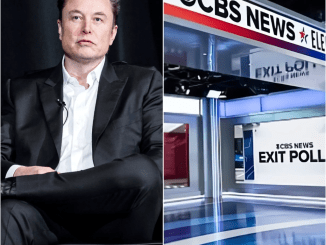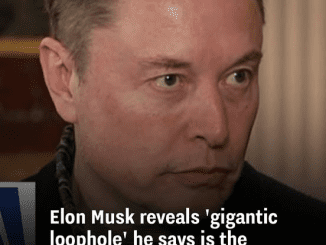
In a bold move that has sparked controversy and debate, tech billionaire Elon Musk recently announced his intention to acquire ABC, one of the largest television networks in the United States. Musk’s motivation for this acquisition, according to sources close to him, is to remove what he perceives as excessive “wokeness” and political correctness from the network’s programming. This decision has ignited a firestorm of criticism and concerns over media influence, freedom of expression, and the role of corporations in shaping public discourse. Musk, known for his outspoken views on a wide range of issues, has been a vocal critic of what he describes as the growing trend of “wokeness” in popular culture and media. In a series of tweets and public statements, Musk has expressed his belief that political correctness has gone too far and is stifling free speech and creative expression. He sees ABC, a network known for its diverse and inclusive programming, as a prime target for his efforts to combat what he sees as an encroachment of so-called “woke ideology” in the mainstream media.

Critics of Musk’s proposed acquisition of ABC argue that his motives are driven more by personal ideology than genuine concern for the quality of programming. They warn that allowing a powerful tech mogul like Musk to control a major media outlet could have far-reaching consequences for the diversity of voices and perspectives that are presented to the public. Concerns have been raised about the potential for Musk to use his influence over ABC to shape public opinion in line with his own beliefs and interests, potentially silencing dissenting voices and limiting the range of viewpoints that are represented in the media landscape. On the other hand, some supporters of Musk’s bid argue that his approach to combating “wokeness” in the media is a legitimate expression of free speech and market forces. They contend that Musk, as a private individual and entrepreneur, has the right to pursue his own vision for the content that is produced and distributed by ABC. They point to the diversity of media outlets and platforms available today as evidence that consumers have the power to choose the content that aligns with their own values and beliefs.
The debate over Elon Musk’s bid to acquire ABC raises important questions about the intersection of media, ideology, and corporate power in the digital age. As technology continues to reshape the ways in which information is produced and consumed, the influence of individuals like Musk on the content that reaches audiences around the world is increasingly pronounced. The outcome of this controversy will have far-reaching implications for the future of media ownership, freedom of expression, and the role of corporations in shaping public discourse.


